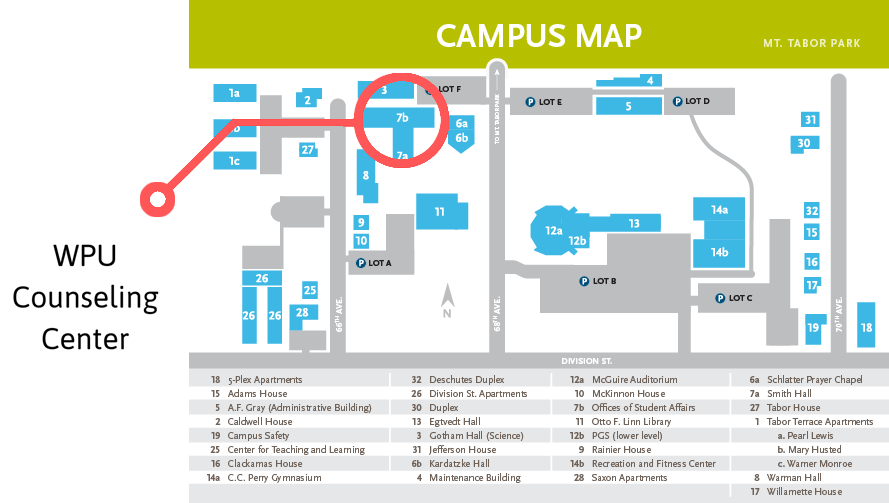The Center offers free and confidential counseling services to currently enrolled Warner Pacific students who reside in Oregon or Washington or physically attend the university. Our services include individual and group therapy, mediation, crisis management, evaluation, referral, and community outreach.
Our goal is to provide a supportive and confidential environment to address student concerns and needs. Our counseling services are designed to help develop deeper self-awareness, strengthen coping skills, foster healthy relationships and improve academic performance and community engagement.
For students residing outside of Oregon or Washington, we encourage you to call the 988 hotline or text “Hello” to the 741741 text line for additional 24/7 support. The 988 hotline connect you to trained counselors who can provide immediate assistance and guidance for mental health concerns. Similarly, the 741741 text line allows you to reach out via text for support from trained crisis counselors anytime, ensuring you have access to help whenever you need it.

